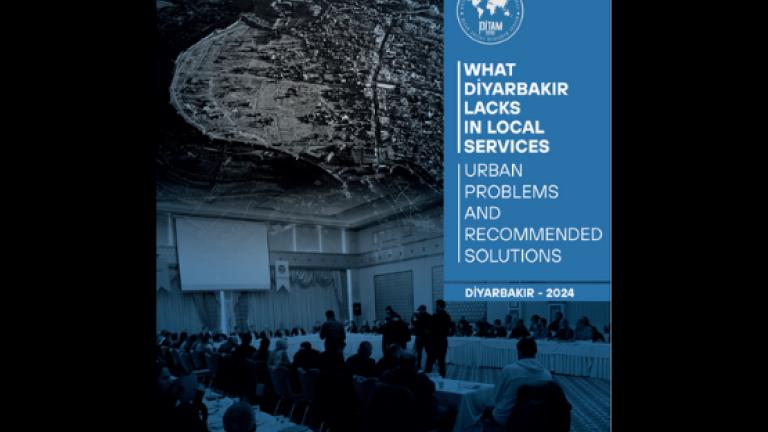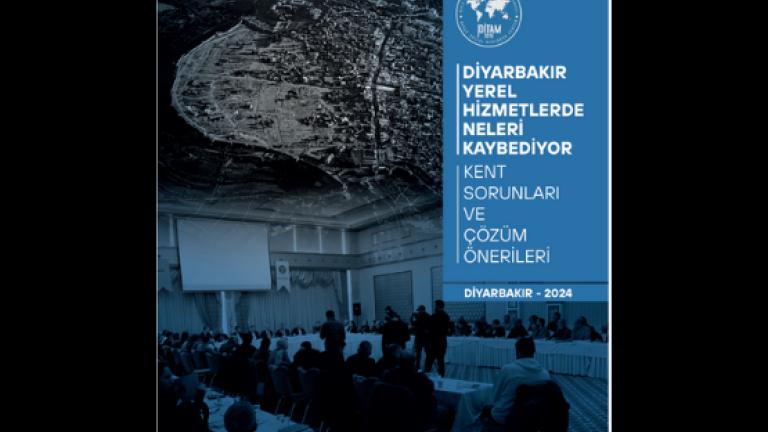
Diyarbakır has been home to many civilizations throughout history, but the people of the region and the country often associate the city with trustees.
This is because the city was governed by trustee municipalities after the local elections in 2014 and 2019. In the 2014 local elections, Gültan Kışanak and Fırat Anlı were elected Co-Mayors of Diyarbakır Metropolitan Municipality. However, on October 25, 2016, they were arrested on charges of "membership in a terrorist organization" following an investigation. Subsequently, on November 1, 2016, Cumali Atilla, the then-District Governor of Ankara Etimesgut, was appointed as the trustee mayor of Diyarbakır Metropolitan Municipality.
In the 2019 elections, Adnan Selçuk Mızraklı was elected mayor of Diyarbakır Metropolitan Municipality but was dismissed after five months, and a second trustee was appointed. After the March 30 local elections, a trustee-free period began in Diyarbakır after 5 years. However, the city still faces many pressing problems. Tigris Social Research Center (DİTAM) has published a new study proposing solutions to these issues. We took this opportunity to speak with DİTAM.
First of all, could you give us some brief information about DİTAM?
Since its establishment in 2010, Tigris Social Research Center (DİTAM) has been conducting research on economic, social, and political issues, primarily in Diyarbakır, in collaboration with experts. This research aims to identify the current situation and contribute to solving problems by challenging relevant institutions. In this direction, we have also carried out a study titled "Identification of Urban Problems and Suggestions for Solutions."
Yes, you recently shared the report of this study. Where did this need arise from?
Since 2016, municipalities in Diyarbakır and many other cities in the region have been under trusteeship. Trustee municipalities have negatively affected diversity and participation in the city. Public administrators unfamiliar with the city's history, culture, and streets had significant roles in governance. More than 8 years of trusteeship led to a decline in the quality of services and distanced the municipalities from the people. This resulted in Diyarbakır not receiving adequate municipal services and a weakening of the city's identity. This governance form continues to pose a significant problem for the city's present and future.
As DİTAM, we launched the "Identification of Urban Problems and Suggestions for Solutions" study to highlight these issues. The study aims to identify Diyarbakır's urban problems with CSOs, academics, and professional chambers and develop solutions.
How did you proceed with the study?
Firstly, on January 6-7, 2024, we held focus group meetings with around 80 representatives of civil society organizations and activists, identifying four main topics: "urban, environment and cultural heritage," "socio-cultural life and policies," "economic situation and rural development," and "what kind of city for women, youth, and children."
We shared the resulting data with the public on Tuesday, February 27, 2024, in Diyarbakır, under the title "What is Diyarbakır Losing in Local Services," with the participation of civil society representatives.

Tunç Soyer, Mayor of Izmir Metropolitan Municipality, and Feridun Çelik, former Mayor of Diyarbakır Metropolitan Municipality, also presented their views at this meeting to compare municipal services in Diyarbakır with those in western Turkey. This collaboration with civil society brought together different perspectives and experiences, providing a more comprehensive overview of the city's local service challenges. In this way, more sustainable solutions were proposed to address the city's challenges and issues more effectively.

To make the outputs and results of these activities accessible, a publication was prepared. Titled “What Diyarbakır is Losing in Local Services,” the publication is available in Kurdish, Turkish, and English. It addresses important issues such as the right to the city, cultural and language rights, the role of local governments, and the protection of urban identity.
We assume that you have not only addressed the problems in the study but also presented your suggestions for solutions to these problems.
Yes, we provide municipalities and elected officials with a comprehensive review and a road map by addressing the current situation in the city, detailing the problems and proposing solutions. There is also a perspective worth seeing for those curious about Diyarbakır's urban fabric and the changes in local services under trustee administration. Our study shows that the problems in the city governed by trustees are not only economic but also negatively impact cultural life, social relations, and individuals' daily lives. The outputs obtained with the contributions of CSOs reveal the need to include these issues in the strategic plans to be prepared by the municipalities, to produce appropriate solutions, and to work in strong cooperation with a participatory administration.
In conclusion, our study demonstrates the necessity of a participatory administration that includes civil society for the proper resolution of the problems in local services in Diyarbakır. It also shows that civil dynamics and local actors need to cooperate to make the best use of the city's potential and achieve sustainable development.
You can access the digital versions of our publication in Kurdish, Turkish, and English here.
You can also watch the footage and presentations of the meeting on DİTAM's YouTube channel.



